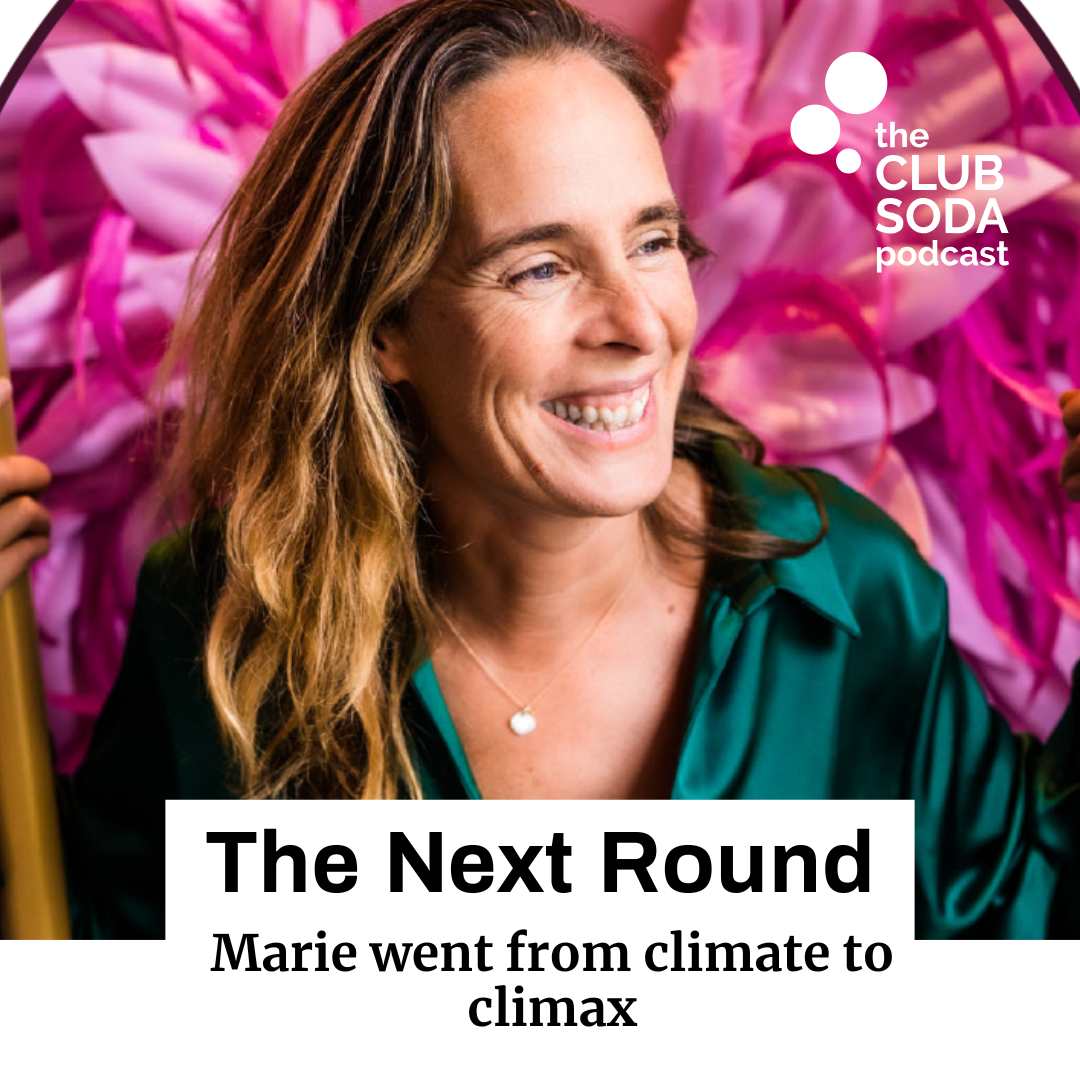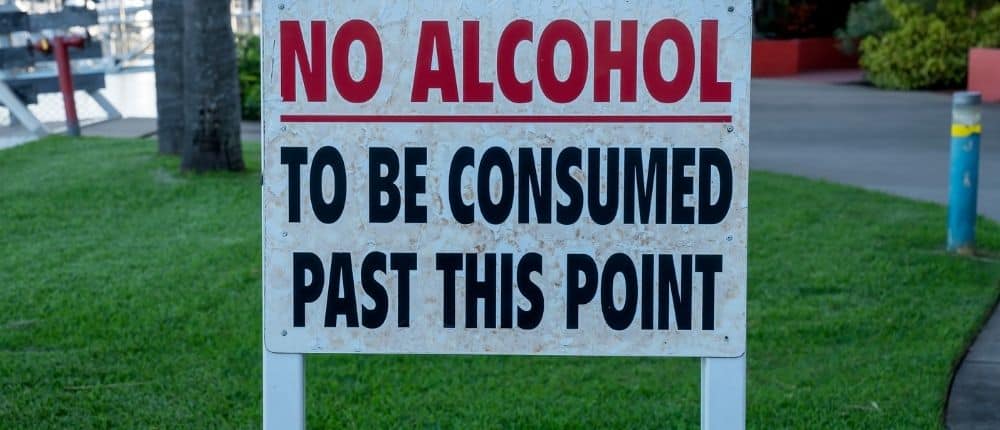
This website uses cookies to improve your experience. We'll assume you're ok with this, but you can opt-out if you wish. Read More
The Next Round: What happens after you change your drinking?

Whether it’s Sober October, Dry January, Mindful May or Dry July, there are many opportunities every year to take a month off alcohol. But a break from drinking doesn’t have to begin on the first of the month. And it doesn’t have to be a challenge, either. Taking a break from drinking is good for you whenever it happens.
Anyone can benefit from a month off drinking. But if you are physically dependent on alcohol (or suspect that you might be), it’s essential not to quit cold turkey. It’s always safest to cut down your alcohol consumption slowly to manage the impact of alcohol withdrawal symptoms. If you’re worried, Club Soda’s free course – How to Change Your Drinking – includes a self-assessment so you can understand your risk. And you should always talk to your doctor.
You might find the first few days easy. And it can be great to wake up hangover free.
But if it’s a struggle to get started with your month off drinking, know that it’s not just you.
Day four of a month off alcohol is often a danger zone. As the last of the alcohol leaves your system, you may find yourself feeling considerably better and wondering what you made a fuss about. But equally, you may be experiencing some discomfort and feeling strong cravings for a drink.
If you can keep going through one week alcohol-free, you’ll begin to feel significantly better in yourself. You may feel the benefits of increased sleep and energy levels. You’ll undoubtedly wake up feeling fresher each morning. And you may grow in confidence that you can do more things alcohol-free.
Beyond the first week, other changes begin to happen in your body. If you’ve suffered from heartburn, this may ease your stomach acid level stabilises. Your blood pressure may reduce. Your liver may start to regenerate.
You might also experience benefits in your mood. Alcohol can significantly impact your emotions, and you may find that you are less anxious. Without alcohol’s ups and downs, your mood may become more level too. And that may begin to have a positive impact on the people around you.
If you experience other benefits of a month off alcohol, that’s all good. But don’t worry if you’re not immediately brighter, shinier and happier. If you find yourself tired, thirsty or moody in the wake of stopping drinking, look after yourself and treat your body gently. It may be that you need some time to recover.
As Dry January has grown in popularity, academics have taken an interest in how a month off drinking affects your overall relationship with alcohol. Taking a month off alcohol could reduce your consumption in the longer term, and it can increase the likelihood you’ll say no to a drink. But it also seems that people who successfully abstain are less likely to have got drunk in the month before. Maybe it’s unsurprising that the people most likely to have a month off successfully are those who find it easiest not to drink anyway.
So if you end up having a drink this month, don’t beat yourself up. But don’t give up, either. Just because you drink too much on Friday night, it doesn’t mean you have to drink on Saturday too.
But with a month ahead, how can you increase the likelihood of success? Two things have been shown to help:
Firstly, you need a structured approach. It’s easy to go off the rails partway through the month when your initial enthusiasm has dimmed, and you’re wondering what to do on a rainy Wednesday evening. You’ve structured your life to make drinking inevitable, and it takes effort to change your habits. It would help if you had daily reminders to keep going, which is why we build motivational nudges into Club Soda’s in-depth courses.
Secondly, you need social support. Being the only person who doesn’t drink can feel socially isolating. But if you’re part of a group working towards the same goal, you can encourage and motivate each other through tricky spots. Communities like Club Soda are full of people taking breaks, cutting down and stopping for good. In short, people who will be your cheerleaders.
And if you want your month off alcohol to make a difference, you need to learn from it. You might be able to white-knuckle your way through a booze-free month by avoiding social occasions, staying at your home and keeping yourself busy. But if your month off alcohol means hitting the pause button on life, you’ve missed a golden opportunity to discover more about yourself.
Every situation in which you say no to a drink teaches you something about your relationship with alcohol. Each month, there are as many as five Friday nights to unwind without beer. Five Saturday evenings to enjoy without cocktails. Sometimes five Sunday lunches to celebrate without wine. There are countless moments in every week when you’ll be faced with a choice to drink. Every single one of those moments is a chance to learn about you and your drinking habits.
A month off alcohol can open your eyes to drinking’s dominance over your social life, your emotions and your routines. If you struggle through your alcohol-free weekends, pay attention to what’s going on around you. And most of all, don’t ignore what you notice in your sober month. Use what you learn to make the next month different.
When you get to the end of your month off alcohol, the urge to celebrate will be strong. And you’re right to want to reward yourself for your achievement. But you’d be amazed how many people reward themselves with a drink.
If you go straight back to your old drinking habits on the first of the next month, expect it to hurt. A lot. A month’s break from drinking will significantly reset your tolerance for alcohol, so if you go back to drinking, go slowly.
Wanting to drink more moderately can be a motivation for taking a break. And if moderation works for you as an approach, you’ll certainly want to build in regular breaks from alcohol.
But it’s important to recognise that taking a break teaches you the single skill of not drinking. It can’t teach you the other skills you need to drink in moderation, like paying attention to your limits, drinking slowly and knowing how to stop before you’ve had too much. If you want to develop these skills, How to Drink Mindfully is an excellent place to start.
You can’t cut back on drinking with wishful thinking.
If you’ve felt the benefits of not drinking alcohol, you may want to push on. Being alcohol-free doesn’t have to be a forever decision, so don’t put yourself under pressure to be perfect. But you might want to experiment with 100 days without drinking to see what happens. Or could you go through the holiday season without drinking? All sorts of alcohol-free opportunities open up once you realise that drinking is never compulsory.
Whatever happens beyond your month off alcohol, you will have done a good thing by taking a break. Whether you breeze through this month or you struggle to stay on track, put another alcohol-free month in your diary now. You won’t regret it.
This website uses cookies to improve your experience. We'll assume you're ok with this, but you can opt-out if you wish. Read More
| Name | Domain | Purpose | Expiry | Type |
|---|---|---|---|---|
| wpl_user_preference | joinclubsoda.com | WP GDPR Cookie Consent Preferences. | 1 year | HTTP |
| PHPSESSID | www.tickettailor.com | PHP generic session cookie. | 55 years | HTTP |
| AWSALB | www.tickettailor.com | Amazon Web Services Load Balancer cookie. | 7 days | HTTP |
| YSC | youtube.com | YouTube session cookie. | 55 years | HTTP |
| Name | Domain | Purpose | Expiry | Type |
|---|---|---|---|---|
| VISITOR_INFO1_LIVE | youtube.com | YouTube cookie. | 6 months | HTTP |
| Name | Domain | Purpose | Expiry | Type |
|---|---|---|---|---|
| _ga | joinclubsoda.com | Google Universal Analytics long-time unique user tracking identifier. | 2 years | HTTP |
| sbjs_migrations | joinclubsoda.com | Sourcebuster tracking cookie | 55 years | HTTP |
| sbjs_current_add | joinclubsoda.com | Sourcebuster tracking cookie | 55 years | HTTP |
| sbjs_first_add | joinclubsoda.com | Sourcebuster tracking cookie | 55 years | HTTP |
| sbjs_current | joinclubsoda.com | Sourcebuster tracking cookie | 55 years | HTTP |
| sbjs_first | joinclubsoda.com | Sourcebuster tracking cookie | 55 years | HTTP |
| sbjs_udata | joinclubsoda.com | Sourcebuster tracking cookie | 55 years | HTTP |
| sbjs_session | joinclubsoda.com | SourceBuster Tracking session | Session | HTTP |
| Name | Domain | Purpose | Expiry | Type |
|---|---|---|---|---|
| mailchimp_landing_site | joinclubsoda.com | Mailchimp functional cookie | 28 days | HTTP |
| __cf_bm | tickettailor.com | Generic CloudFlare functional cookie. | Session | HTTP |
| NID | google.com | Google unique id for preferences. | 6 months | HTTP |
| Name | Domain | Purpose | Expiry | Type |
|---|---|---|---|---|
| _ga_10XZMT03ZM | joinclubsoda.com | --- | 2 years | --- |
| AWSALBCORS | www.tickettailor.com | --- | 7 days | --- |
| cf_clearance | tickettailor.com | --- | 1 year | --- |
| VISITOR_PRIVACY_METADATA | youtube.com | --- | 6 months | --- |
Join Club Soda for 10% off your first order of drinks for UK delivery. Plus get our latest news and special offers for members to choose better drinks, change your drinking and connect with others.
If you get an error message with this form, you can also sign up at eepurl.com/dl5hPn